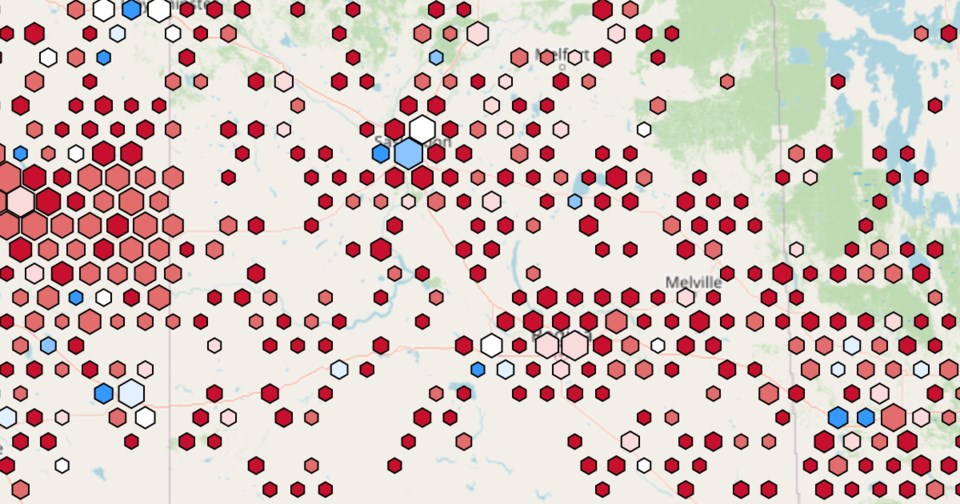The COVID-19 crisis has exposed a digital divide across Canada that has been almost invisible to many not looking for it, says an advocate for internet access.
“We’re seeing a lack of available internet, particularly in rural areas, but also a lack of high enough quality or speed to be able to do things like video conferences,” something increasingly relied on as people work from home, said Laura Tribe, executive director of OpenMedia Canada.
The Canadian Internet Registration Authority has been conducting internet performance tests and found high speed isn't the norm in rural Canada.
"In April, median rural download speeds were measured at 3.78 Mbps, compared to 44.09 Mbps in urban Canada – a difference of 11.7 times," said a May 8 media release from the CIRA.
"Rural Canadian upload speeds are, on average, ten times slower than urban speeds. Fast upload speeds are critical for video conferencing, cloud storage, and other popular productivity applications used by Canadians working and learning from home."
The CIRA said it has found that median download speed have decreased since the start of the pandemic in rural areas, while increasing in urban areas.
With the pandemic closing many public spaces, “a lot of interim solutions people might have been using to keep themselves connected aren’t available,” Tribe said.
The federal government has committed to providing high speed internet to all Canadians by 2030. This followed a 2016 ruling by the CRTC that high speed internet is an essential service. A $750-million CRTC fund is dedicated to building the necessary infrastructure that will provide universal access, but none of the money has been awarded yet, said Tribe.
Earlier this year, Parliament’s Standing Committee on Industry, Science and Technology pledged to study the accessibility and affordability of telecommunications services in Canada. Among other things, the committee is tasked with examining rural internet access.
On May 7, stakeholders met virtually with the committee to discuss what can be done during the COVID-19 crisis when the need for reliable high speed internet access has become acute.
Tribe was one of the witnesses. She wants the federal government to implement a basic affordable internet package. While an existing program provides $10 a month internet to some who meet specific criteria, it leaves many behind, she said.
Ultimately, said Tribe, Canada needs a National Broadband Strategy with timelines far sooner than 2030.
This week, Conservative MP Michelle Rempel, who sits on this federal committee, released 14 recommendations, which include a short-term fix to address internet needs in rural areas in light of COVID-19.
“For most rural Canadians, internet service is inadequate at best, but the requirement to work from home, precipitated by COVID-19, shows it is unreasonably inadequate,” she said.
Advocates are hoping the crisis has created an urgency that will prompt action.
“I hope that understanding how reliant everyone is right now on the internet, can give governments and those in positions of power that real kick they need to make it happen faster,” said Tribe.
Editor's Note: The New Brunswick-focused data found in the original version of this story has been removed.




